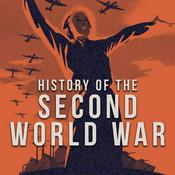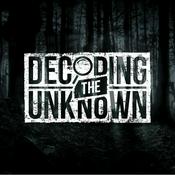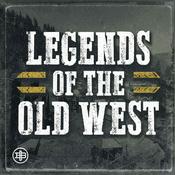13 episodes

Infanticide - part 2 (1700-present)
1/06/2025 | 29 mins.
In today's episode, we continue to look at infanticide. We start by discussing the 2016 Canadian case of R v. Borowiec, where a woman was convicted of infanticide after killing two of her babies and attempting to kill a third. The courts found she was guilty of infanticide -- and not murder -- because she was mentally disturbed at the time of the acts. The distinction is important because the crime of infanticide carries with it a much lower punishment than murder does. To better understand this case, we need to go back to the history of infanticide. Last time, we saw courts in the 1600 and 1700s refusing to convict women of infanticide--and sentence them to death--when there was no evidence they killed their child. But starting in the 1700s, courts begin to refuse to convict women of infanticide even when there is evidence of murder! What explains this change? Why don't juries think that women who kill their children are guilty of murder? How should the law treat infanticide? If you like the episode, please help us out by reviewing it on your podcast app, or sharing the podcast with a friend! As always, check out the website for sources and more details at historyofmurderpodcast.com. This is a public episode. If you would like to discuss this with other subscribers or get access to bonus episodes, visit historyofmurder.substack.com

Infanticide
8/07/2022 | 39 mins.
Today we begin to talk about a very special kind of homicide: infanticide. Infanticide, or the killing of newborn children, is a surprisingly large topic in the history of murder, and we're going to cover it over the course of two episodes. This topic has a colourful history because Parliament, judges and juries aren't sure what to make of it. If a woman kills her child, is it murder? In some respects, it sounds like murder; after all, it's one person killing another. But in other respects, it doesn't really resemble the classic murder cases we've seen so far. A mother who kills her child out of desperation doesn't seem to be committing the same crime as someone who stabs his rival to death over some trivial insult. In today's episode, we'll look at the 1624 law called An act to prevent the destroying and murthering of b*****d children. We'll see Parliament attempt to crack down on "lewd women" who kill their "b*****d children" and get away with it. Then, we'll see that this law has some serious flaws (namely, that it lumps together innocent and guilty women and tells courts to execute the lot of them). Finally, we'll see how judges and juries think that that's a bit extreme, how they walk it back, and how they redefine infanticide going forward. We'll wrap up by considering the strange relationship between courts and legislators. If you like the episode, please help us out by reviewing it on your podcast app! As always, check out the website for sources and more details at historyofmurderpodcast.com. This is a public episode. If you would like to discuss this with other subscribers or get access to bonus episodes, visit historyofmurder.substack.com

Witchcraft in English law - Bonus episode
5/27/2022 | 30 mins.
This week's episode is a bonus episode on the history of witchcraft in English law. We give murder a rest in this episode and focus exclusively on the rise and fall of witchcraft in England in the 17th century instead. The episode starts by looking at King James I's weird personal relationship with witch-hunting. We then see how his son, Charles I, was a bit skeptical about the whole thing, and how he fostered skepticism towards witch-hunting until his career was cut short (so to speak) and civil war broke out. We then turn to the story of the so-called Witchfinder general, Matthew Hopkins, and his colleague, John Stearne, who were responsible for the executions of over one-hundred alleged witches during the English Civil War. Finally, we'll see that after the war, judges began to reject the idea that witchcraft could be proved in court, and how witchcraft prosecutions died out before witchcraft beliefs did. Don't worry if you are missing the history of homicide - we'll be back with an episode on infanticide next time. This is a public episode. If you would like to discuss this with other subscribers or get access to bonus episodes, visit historyofmurder.substack.com

Witchcraft
11/24/2021 | 40 mins.
Today's episode is on one of the best topics in the history of the law - witchcraft! We start this episode by looking at the first famous witchcraft trial (and pamphlet) in England, the case of Mother Waterhouse. Mother Waterhouse's case gives us some clues as to why witches and witchcraft-accusers tended to be women. One reason is that witchcraft cases tended to revolve around neighborly disputes, household problems and children. Because of this, we'll see the witch portrayed as the "anti-housewife" and the "anti-mother." Then, we'll look at how witchcraft was prosecuted in the courts. How can you prove that someone is a witch? Many types of evidence are brought before the courts, including children having fits, some extremely doubtful testimony, and the witch's mark. Over time, the evidence becomes too doutbful to trust and witchcraft becomes impossible to prove by the late-seventeenth century. Finally, we'll bring it all back to the history of murder. How does witchcraft match up against other "feminine" crimes we've seen so far? And yes, it's true that witchcraft isn't classically considered a type of homicide. But how could I resist? This is a public episode. If you would like to discuss this with other subscribers or get access to bonus episodes, visit historyofmurder.substack.com

The Trial of Catherine Hayes
11/17/2021 | 28 mins.
Today's episode of the History of Murder Podcast focuses on the trial and execution of Catherine Hayes. Catherine Hayes was convicted of murdering her husband in 1726 and was sentenced to be burned at the stake for this crime. The facts in this case are just as fascinating now as they were in 1726. Spoiler alert: we'll see a pickled head, allegations of adultery and incest, and a horrifying botched execution. We'll then try to avoid being historical voyeurs--only interested in cases for their scandal and dramatic value--by focusing on what this case tells us about women who killed their husbands in the history of murder. We'll see how contemporaries thought this crime was unnatural and motivated by lust and lewdness - much like other crimes committed by women. We'll also see once again that the common law seems to have had no way to take into account a woman's abusive situation in determining her guilt when it comes to petty treason. Check out a drawing of Catherine Hayes and her two co-accused murdering Mr. Hayes at historyofmurderpodcast.com and follow us @murderhistorian on Twitter. Please be sure to subscribe and comment if you like the episode! This is a public episode. If you would like to discuss this with other subscribers or get access to bonus episodes, visit historyofmurder.substack.com
More History podcasts
Trending History podcasts
About The History of Murder Podcast
Listen to The History of Murder Podcast, American History Tellers and many other podcasts from around the world with the radio.net app

Get the free radio.net app
- Stations and podcasts to bookmark
- Stream via Wi-Fi or Bluetooth
- Supports Carplay & Android Auto
- Many other app features
Get the free radio.net app
- Stations and podcasts to bookmark
- Stream via Wi-Fi or Bluetooth
- Supports Carplay & Android Auto
- Many other app features


The History of Murder Podcast
download the app,
start listening.







































